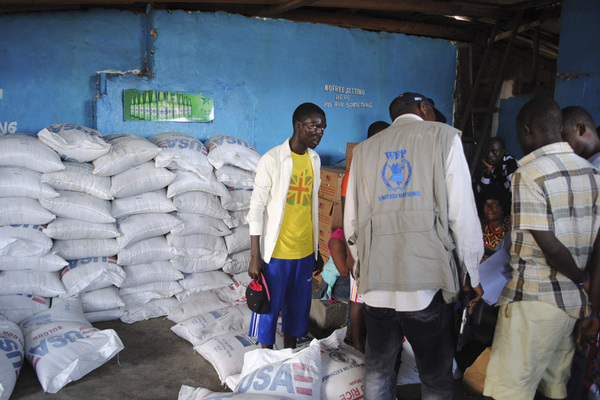You are here
How West Africa is ramping up food security after Ebola outbreak
Thu, 2015-07-30 09:24 — mike kraftCountries in West Africa and the international community are teaming up to fight Ebola's lingering effects on food security and agriculture.
 Volunteers distribute food at a World Food Programme storage center in Monrovia October 16, 2014. Almost a year after the Ebola outbreak garnered strength in West Africa, countries in that region and the international community are teaming up to fight the disease's lingering effects on food security and agriculture. James Giahyue/Reuters/File
Volunteers distribute food at a World Food Programme storage center in Monrovia October 16, 2014. Almost a year after the Ebola outbreak garnered strength in West Africa, countries in that region and the international community are teaming up to fight the disease's lingering effects on food security and agriculture. James Giahyue/Reuters/File
CHRISTIAN SCIENCE MONITOR by Clare Algozin July 29, 2015
As the death toll of EVD rose, West African countries began to experience labor shortages, and many fields of crops went unharvested, according to U.N. Food and Agriculture Organization (FAO). As part of the measures to prevent the spread of EVD, many West African governments established quarantine zones and restricted the movements of people.
Unable to increase food production and with little to no goods moving into these countries, the price of food skyrocketed and led to food shortages. Additionally, the banning of bushmeat like chimpanzee, antelope, and buffalo to prevent further infection deprived many households of a vital source of protein.
Now as the virus recedes, West African countries and the international community are ramping up efforts to combat the next killer: hunger. The World Food Programme (WFP) estimates that as many as 1.4 million people will be food-insecure because of Ebola.
Read complete story.

Recent Comments